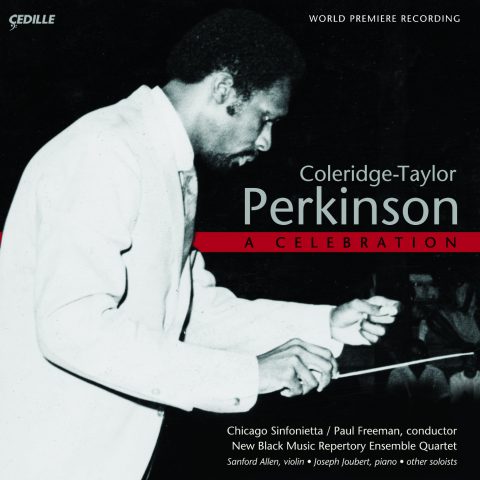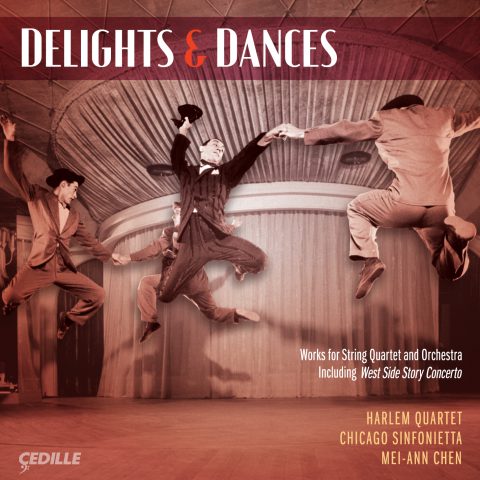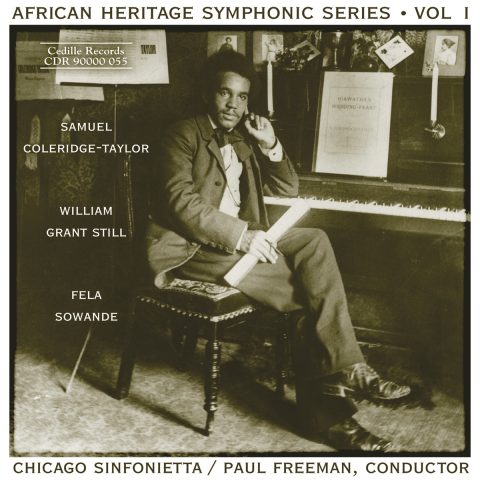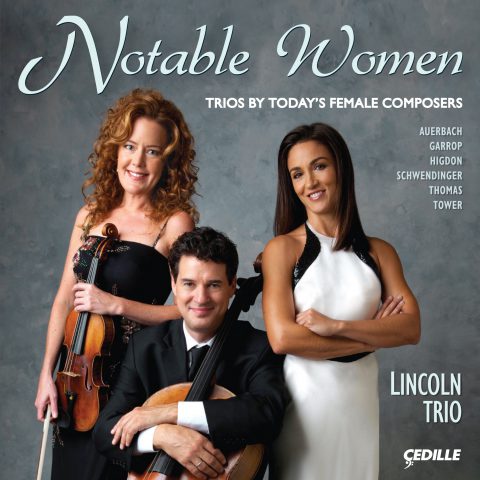Store
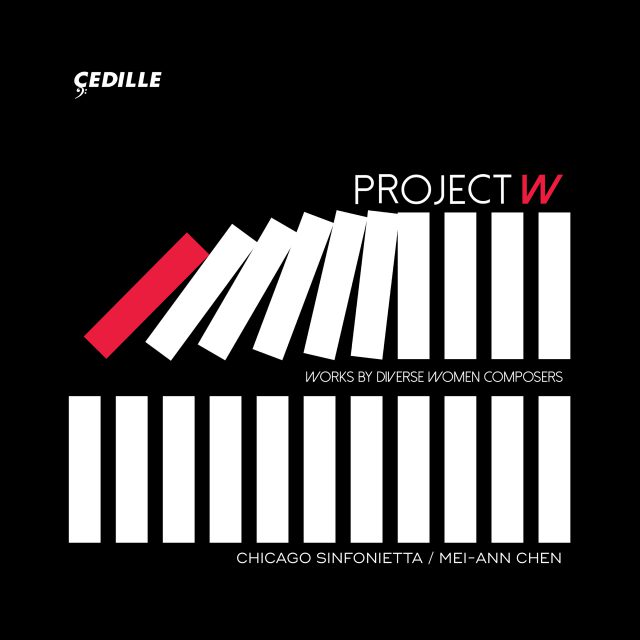
Store
Project W — Works by Diverse Women Composers
Chicago Sinfonietta, Mei-Ann Chen
Clarice Assad, Reena Esmail, Florence Price, Jessie Montgomery, Jennifer Higdon
Conductor Mei-Ann Chen and the Chicago Sinfonietta — the adventurous, MacArthur Award-winning orchestra that champions racial, ethnic, and gender diversity in classical music — give world-premiere recordings of newly commissioned American works by Jennifer Higdon, Clarice Assad, Jessie Montgomery, and Reena Esmail on Project W: Works by Diverse Women Composers, the capstone project of its 30th anniversary season.
Higdon, winner of a Pulitzer Prize and two Grammy Awards, invites listeners to luxuriate in the beauty of a virtuosic string orchestra with Dance Card, a five-moment suite that San Francisco Classical Voice praised for its “pleasurable sounds” and “intellectual heft.” Assad is a Grammy-nominated, Brazilian-American composer and performer. Her Sin Fronteras (Without Borders) lives up to its title with an exotic blend of musical influences from throughout the Americas. Juilliard-trained African-American composer Montgomery, a violinist member of the acclaimed Catalyst Quartet and a collaborator with Yo-Yo Ma’s Silkroad Ensemble, imbues her Coincident Dances with the frenetic energy and multicultural sound worlds of her native New York City. Esmail, an Indian-American graduate of Juilliard and the Yale School of Music, draws from Western and Hindustani (north Indian) classical music for Black Iris, a composition rooted in her own personal experiences.
Founded by pioneering African-American conductor Paul Freeman (1936–2015), the Chicago Sinfonietta also presents the first-ever recording William Grant Still’s orchestral arrangement of Florence Price’s buoyant, lyrical Dances in the Canebrakes.

Listen to Jim Ginsburg’s interview
with Mei-Ann Chen and Clarice Assad
on Cedille’s Classical Chicago Podcast
Preview Excerpts
Florence Price (1887-1953)
Dances in the Canebrakes
CLARICE ASSAD (b. 1978)
JESSIE MONTGOMERY (b. 1981)
REENA ESMAIL (b. 1983)
REENA ESMAIL (b. 1983)
JENNIFER HIGDON (b. 1962)
Dance Card
Artists
Program Notes
View Album BookletProject W
Notes by Don Macica
In late 2016, the Chicago Sinfonietta began planning its 30th Anniversary season with these questions: How do we honor the legacy of Dr. Paul Freeman, the orchestra’s founder and music director for its first 24 years? How do we celebrate the groundbreaking work of its current music director, Mei-Ann Chen? And even more important, how do we move the organization forward in its ongoing commitment to showcasing diverse classical composers in its milestone season?
Dr. Freeman was already an internationally acclaimed African-American conductor when he founded the Chicago Sinfonietta in 1987. Inspired by Dr. Martin Luther King, Jr., Freeman dedicated himself and his new orchestra to highlighting seldom-heard composers and performers from diverse backgrounds and putting them on an equal footing with the white European and American canon so familiar to the classical audience.
At the turn of the millennium, Freeman found a partner in Chicago-based Cedille Records and the Chicago Sinfonietta soon released the first of four albums featuring works by African-American composers.
Mei-Ann Chen is charting new roads as an Asian woman in a historically White male-dominated field. Following in Freeman’s footsteps, she uses her podium as an instrument of change by giving a voice to the underrepresented. In 2011, Chen dedicated her second concert with the Sinfonietta (a guest conductor appearance immediately prior to her appointment as music director) to women composers. She recognized that, as with other voices outside of the male-dominated field of classical music, women’s contributions have been overlooked.
Dedicated to diverse women in classical music, the Sinfonietta’s Project W concerts and recording spotlight their musical contributions and confront the persistent gender gap in classical music today. Few women hold music director posts and orchestral works written by women made up barely 1% of performed repertoire in 2017. Mei-Ann Chen and the Chicago Sinfonietta addressed this situation with the commissioning and co-commissioning of four new orchestral works. By coupling these brand-new, never-recorded compositions with a historic work by Florence Price, Project W represents the past and present of women in classical music, while pointing towards a more inclusive future. The powerful voices of the women included in this program serve as a stirring reminder that we all lose when women’s’ contributions are silenced.. The Sinfonietta premiered two of the commissioned works on the orchestra’s season opening concert in September 2017. The others followed on the orchestra’s March 2018 Hear Me Roar concert, Chen’s second program dedicated entirely to women composers.
Mei-Ann Chen begins this album of new commissions by tipping her baton to history with the inclusion of a 65-year-old piece by a composer who lived much of her life in Chicago. Florence Price (1887–1953) was the first African-American woman acknowledged as a symphonic composer. If there is ever to be a major Price revival, Maestro Chen will surely be one of its driving forces. She has conducted four different Price compositions in the last several years, both at the helm of the Sinfonietta and as a guest conductor around the world, including with the Chicago Symphony Orchestra.
Price was born and began her music career in Arkansas, after studying at the New England Conservatory of Music. Worsening racial tensions in Arkansas convinced Price to move to Chicago in 1927, where she pursued further studies at the American Conservatory of Music and Chicago Musical College before establishing herself as a teacher, pianist, and organist. Her Symphony No. 1 debuted with the Chicago Symphony Orchestra in 1933, the first time a major orchestra had ever performed a work by an African-American woman. Price’s inclusion on this album of premieres serves as a through line that connects the Sinfonietta’s historic and unwavering advocacy of Black composers to its championing of gender representation.
Dances in the Canebrakes is a suite of dances based on African-American melodies. Price originally wrote this piece for solo piano at the end of her life. Immediately after her death, it was orchestrated by none other than William Grant Still, widely regarded as the dean of African-American composers and a great admirer of Price’s art. The orchestral version debuted in 1953, and you can hear quite a bit of Southern folk song and spiritual tradition in its three movements. They are, nonetheless, dances, and lively ones at that. The piece is divided into three movements, each with its own title: Nimble Feet, Tropical Noon, and Silk Hat and Walking Cane.
Following Price’s work is the first of the album’s newly commissioned pieces, by singer, pianist, and composer Clarice Assad (b. 1978). Assad’s new work, Sin Fronteras (Without Borders), dissolves the geographic, cultural, and moral boundaries that disconnect people from one another. She readily admits that it is somewhat of a utopian ambition, given that drawing boundaries is something the human race has willingly subscribed to for thousands of years.
Assad was born in Brazil but has spent the last two decades living in the United States. She considers her home to be The Americas, not one or the other. Her new work starts its aural journey at the bottom of South America, traveling up both Atlantic and Pacific coasts all the way to the northern hemisphere via Central America. Each theme borrows a little something from the other to create something new, yet that new thing is still rooted in the culture from which it grew. Sin Fronteras was originally written with dancers in mind, choreographed by Wilfredo Rivera for the Cerqua-Rivera dance theater.
The rhythmic quality that Assad deftly employs in Sin Fronteras also applies to Coincident Dances by Jessie Montgomery (b. 1981), violinist and member of New York City’s adventurous and highly acclaimed Catalyst Quartet. Montgomery grew up in New York City, a profoundly multicultural environment where a simple walk to the market entails a multitude of sounds and experiences overlapping each other. Coincident Dances is an expression of that environment. It is a fusion of several sound-worlds: English consort, samba, mbira (the African thumb piano), dance music from Zimbabwe, swing, and even 21st-century techno.
Indian-American composer Reena Esmail was born in 1983. Her Project W commission is the
provocative composition #metoo. A graduate of the Juilliard School and Yale School of Music and a 2011–2012 Fulbright Scholar to India, Esmail draws elements from both Western and Hindustani (North Indian) classical music.
Esmail was already in the process of writing her new piece when #MeToo entered the national consciousness in October 2017. Moved by both her own rage and solidarity with the bravery of the women who were telling their stories, she took her responsibilities as an artist and composer to their necessary conclusion: To use that platform to start real, honest discussions about how each one of us can contribute to a better future for everyone. Thus, what was already underway with a working title of Avaaz (transliteration of the Hindi term for “voice”) was given new purpose and became #metoo — the piece has since been re-titled Black Iris.
As the work took on new meaning, its shape was altered. There is a point where the forward motion stops entirely. After an uncomfortable silence, the women musicians of the Sinfonietta reenter singing, one by one, in the order of the year they entered the orchestra, their individual voices joining together to bring the work back to life. The listener is left to contemplate what was lost when their voices were silenced and how much humanity is enhanced when they are heard and honored. About the events that inspired the piece, Esmail writes:
The harm itself happened when I was in high school and college, but I only began to admit it — even to myself — in 2015, when I first wrote honestly about it in words. And one of the first things I put in this writing was that I was hoping at some point that I could express those emotions, which were still so raw at that point, in an orchestral work. This piece, #metoo, written almost three years later, is that work.
As at its concert premiere, on this album Esmail’s own singing serves as an introduction to Black Iris (fka #metoo). The composer writes:
I wrote a melody for this piece in a traditional Hindustani form, called a “bandish” — a short melodic composition upon which a musician would then improvise. It is in Raag Charukeshi, one of my favorite raags, because of its constant shifting between what Westerners hear as major and minor. It turns on a dime between darkness and light. The first track presents the Charukeshi bandish in its purest form. In #metoo, the bandish serves as the “protagonist” of the piece — a woman who is trying to navigate through a world filled with pitfalls, dead ends, dark turns — each time finding the way back to her own, individual, powerful voice.
About her performance of Charukeshi Bandish, Esmail states: “While I am certainly not a professional Hindustani singer, I have studied the artform for a number of years, and I truly enjoyed recording the bandish for this album.”
The final commission is by Jennifer Higdon (b. 1962), a Pulitzer Prize-winning composer with longstanding ties to both the Chicago Sinfonietta and Mei-Ann Chen. In fact, her most celebrated composition, blue cathedral, was performed on the Sinfonietta’s Women in Classical Music concert in 2011 where Paul Freeman retired and officially handed over the baton to Maestro Chen.
A self-taught flutist, Higdon began composing at 21 and is fluent across genres, including orchestral chamber, choral, vocal, and wind ensemble. This new work, Dance Card, is a co-commission of the Chicago Sinfonietta, River Oaks Chamber Orchestra, and New Century Chamber Orchestra.
The whimsically, yet purposefully named piece is a celebration of the joy, lyricism, and passion of a group of strings playing together. Higdon composed it in five movements, each of which is designed so that it can also be played as a separate work. From a string fanfare to gentle serenades and actual wild dances, the musicians get a chance to highlight their soloistic and ensemble playing.
Project W: Works by Diverse Women Composers demonstrates that, just as there is no “typical” kind of classical music or composer, compositions written by women are a product of their whole selves, reflective of both their shared and diverse experiences. Yes, Project W focuses on women, but it also points the way to a future where inclusion is a matter of course, instead of exceptional.
A 25-year veteran of the music industry, Don Macica is Founder and Director of Home Base Arts Marketing Services. Before starting that enterprise, he was Director of Communications for the Chicago Sinfonietta.
Album Details
PRODUCER James Ginsburg
ENGINEER Bill Maylone
COVER ART J Caleb Designs
GRAPHIC DESIGN Bark Design
RECORDED September 19, 2017 and March 13–14, 2018 at Wentz Hall, Naperville IL
PUBLISHERS
Dances in the Canebrakes © 1953 EMI Mills Music, Inc.
Coincident Dances © 2017 Montgomery Music
Sin Fronteras © 2017 Virtual Artists Collective Publishing
#metoo © 2018 A Piece of Sky Music (ASCAP)
Dance Card © Jennifer Higdon (ASCAP)
© 2019 Cedille Records
CDR 90000 185
